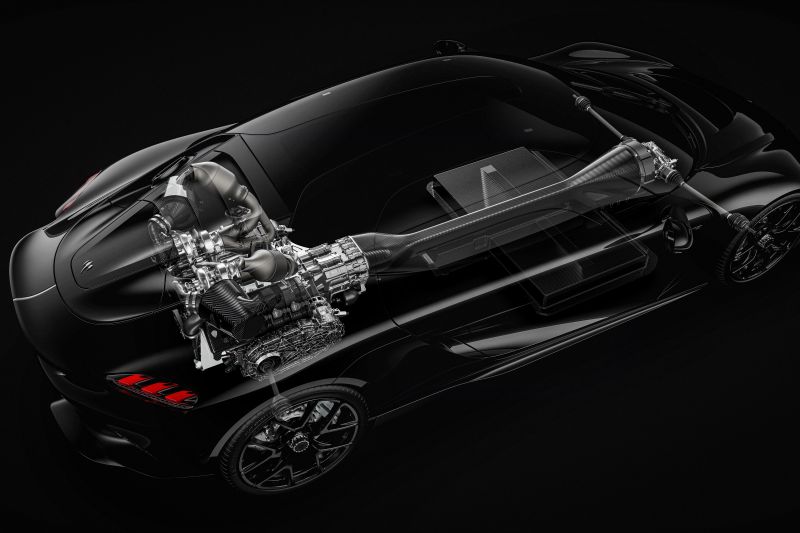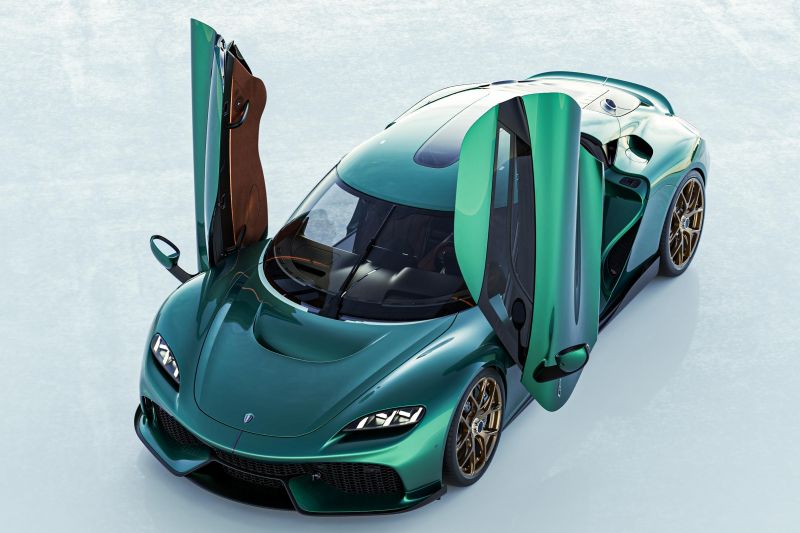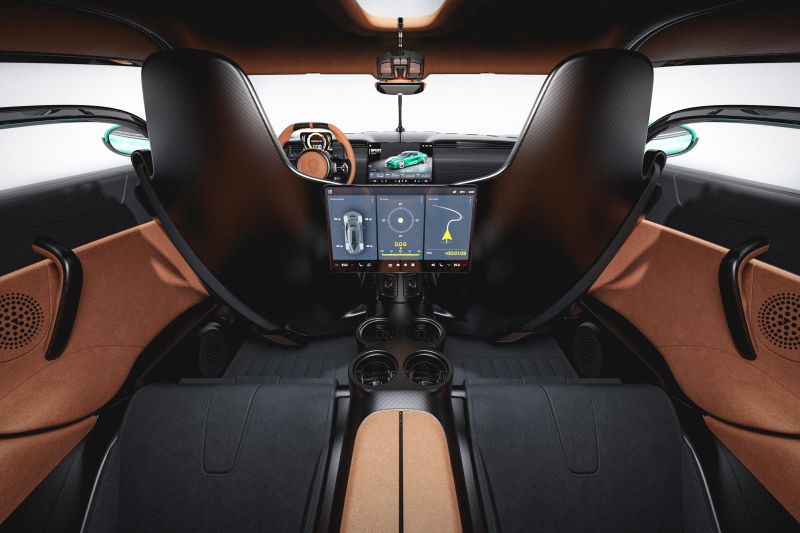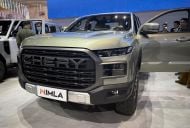Koenigsegg first revealed the Gemera four-seat “megacar” in 2020, and now three years later the Swedish hypercar specialist has shown it off in “client specification” form.
A few things have changed on the Koenigsegg Gemera since it was first revealed, with a highlight being a powerful new singular electric motor replacing the previous three electric motors.
Dubbed the ‘Dark Matter’, this patent-pending Raxial Flux electric motor produces 597kW and 1250Nm and is mated to a so-called ‘Light Speed Tourbillion Transmission’ (LSTT) instead of the original Gemera show car’s Direct Drive transmission.
The LSTT was first introduced in the Jesko and is essentially a nine-speed automated multi-clutch transmission.
Drive in the Gemera is sent through an all-wheel drive system and there is also four-wheel torque vectoring.
With the ‘Tiny Friendly Giant’ (TFG) 2.0-litre three-cylinder twin-turbo three-cylinder petrol engine and produces 447kW and 600Nm, the Gemera produces total system outputs of 1044kW and 1850Nm.
Another highlight of the “client specification” Koenigsegg Gemera is the option of ditching the twin-turbo three-cylinder engine for a stonking twin-turbo V8.
The ‘Hot V8’ (HV8) is a modified version of the Jesko’s 5.0-litre twin-turbo V8 engine with top-mounted exhaust exits producing 1119kW and 1500Nm. Total system outputs for this particular Gemera are 1715kW and 2750Nm.
Both versions of the Gemera come with an in-house designed and produced 14kWh battery pack with an 850V electric architecture.
The Koenigsegg Gemera is claimed to be the first four-seat hypercar. It has two humongous doors which allow for easy ingress and egress for front and rear passengers.
All four seats in the Gemera are equally sized bucket seats that are heated and electrically adjustable.
The car also has 200 litres of luggage capacity, which equates to four full-sized carry-on suitcases.
Koenigsegg has confirmed production of the Gemera will commence at its Gripen Atelier facility in Sweden at the end of 2024. Customer deliveries will start in 2025.










